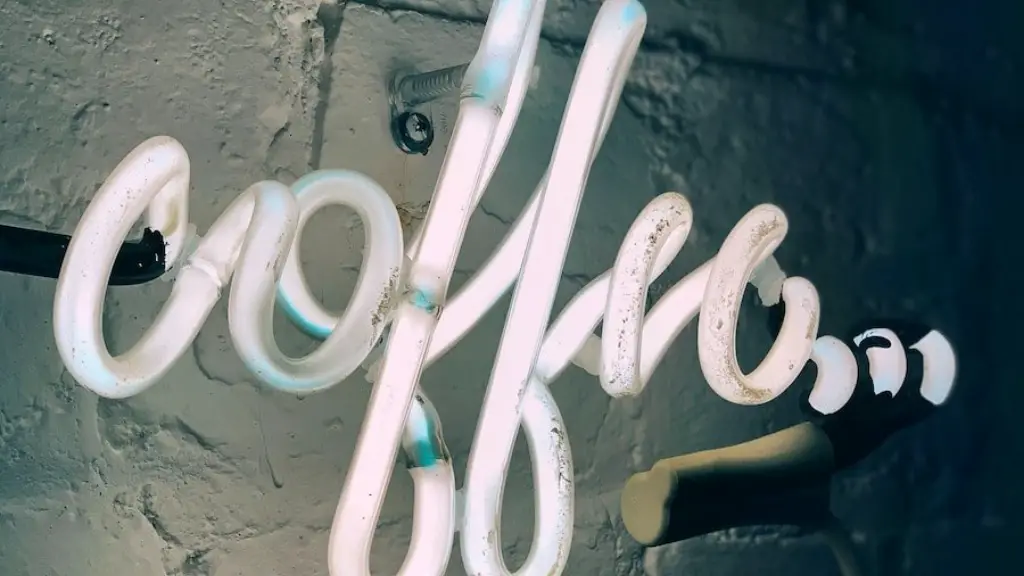Introduction: Coffee is a popular beverage enjoyed by adults around the world. However, medical experts, parents, and educators all have differing opinions on when the drink should be introduced to children. The question of what age is it okay to drink coffee is one that has been heavily debated over the years. While the answer is ultimately up to individual parents and their children, it can be helpful to look at the scientific evidence, expert insights, and common advice when making the decision.
Nutritional Impact Without a doubt, caffeine does offer some health benefits for adults. However, for children, the impact of drinking coffee and other caffeine-containing beverages on their growth is less clear. Studies have shown that drinking coffee, even in moderate amounts, can cause sleep disturbances in children, as well as an increase in the risk of developing anxiety, heart disease, and type 2 diabetes. Additionally, caffeine can affect the way minerals and nutrients are absorbed, which is why it is essential that children get enough of these key minerals and nutrients through their diet.
Social Impact For parents, another major concern is the social impact that drinking coffee can have on their children. When children are given access to coffee, they may start to become used to the caffeine and begin to expect it in other drinks as well. This could lead to the child developing an addiction to caffeine, which could lead to increased anxiety and other negative impacts on the child’s development. Additionally, there is some evidence that suggests that drinking caffeine can lead to risky behaviors, such as using alcohol or drugs.
Expert Opinion Psychologists and medical professionals usually recommend that children wait until about age 12 to start drinking coffee in moderation. This age is typically seen as the earliest age in which a child can begin to understand the effects that caffeine can have on the body. Additionally, this age allows the child to be old enough to make responsible decisions when it comes to coffee. It is important to note that the American Academy of Pediatrics advises that children under 12 should not drink any caffeinated beverages at all.
Personal Factors When deciding what age is it okay to drink coffee, it is also important to consider the individual child’s maturity level. Some children may be more mature and responsible than other children their age, while others may not be ready to understand the effects of caffeine. Therefore, it is important to have a discussion with your child to ensure they understand the potential negative impacts of caffeine, as well as the importance of moderation.
Tolerance Finally, it is important to keep in mind that each child is different and may respond to caffeine differently. Some children may be more sensitive to caffeine than others and may experience more adverse effects. Therefore, it is important to start with small amounts of caffeine and to monitor the effects on the child. This will allow the parent to better understand the individual child’s tolerance for caffeine.
Benefits
StimulationOne potential benefit to introducing coffee to children is that it can help them to stay alert and focused. Studies have shown that moderate amounts of caffeine can help to stimulate the brain and improve cognitive performance. This could be beneficial for children who are struggling in school, as the caffeine can help them to stay alert and perform better in class.
EnergyAnother potential benefit is that caffeine can give children more energy throughout the day. Caffeine acts as a stimulant and can help children to stay energized and ready to tackle tasks and activities. This can be particularly helpful for school-aged children, as it allows them to stay focused and alert throughout the day.
Appetite Suppressant Finally, caffeine is also known to be an appetite suppressant. This can be beneficial for children, who may be prone to overeating. By drinking coffee, children may be able to regulate their appetite and avoid overeating.
Risks
Addiction The most prominent risk associated with allowing children to drink coffee is the potential for them to become addicted to it. Caffeine is a powerful stimulant and can be habit-forming if used in excess. Therefore, it is important to ensure that children understand the effects of caffeine and reduce the risk of them developing an addiction.
Sleep One of the most common effects of caffeine is sleep disturbances. Caffeine is known to affect sleep quality, which can have a negative impact on a child’s learning and development. Therefore, it is important to monitor a child’s intake of caffeine and remind them to limit their consumption of coffee, especially in the afternoon and evening.
Health Risks Finally, caffeine can also have some long-term health risks, such as an increased risk of type 2 diabetes, heart disease, and anxiety. Therefore, it is important to ensure that children drink coffee in moderation and do not consume too much caffeine over time.
When to Introduce
When it comes to deciding what age is it okay to drink coffee, it is important to remember that the decision ultimately lies with the parents. Each child is different and the effects of caffeine can vary from person to person, so it is important to consider the individual child’s maturity level and tolerance for caffeine. However, medical professionals usually recommend that children wait until about age 12 to start drinking coffee in moderation. This age is typically seen as the earliest age in which a child can begin to understand the effects that caffeine can have on the body.
Dos and Don’ts
Do: Introduce coffee to your child in moderation and keep an eye on the effects it has on them. Talk to them about the potential risks of coffee and make sure they understand the importance of moderation.
Don’t:Introduce coffee to children under the age of 12. Also, don’t encourage them to drink more coffee than they are comfortable with, as this could lead to an addiction.
Alternatives
Decaf Coffee For those who want to enjoy the taste of coffee but don’t want the effects of caffeine, decaf coffee is an excellent option. Decaf coffee contains a much lower amount of caffeine and can be a great way to get the taste of coffee without the negative effects of caffeine.
Herbal Tea Another popular alternative is herbal tea. Herbal teas come in a variety of flavors and can provide a healthier and more exciting alternative to coffee. They are also caffeine-free, so they are a great option for children.
Caffeine-Free DrinksFinally, there are a variety of caffeine-free drinks available that can provide the same taste as coffee without the caffeine. These drinks can be a great alternative to coffee and can be enjoyed by children of all ages.




